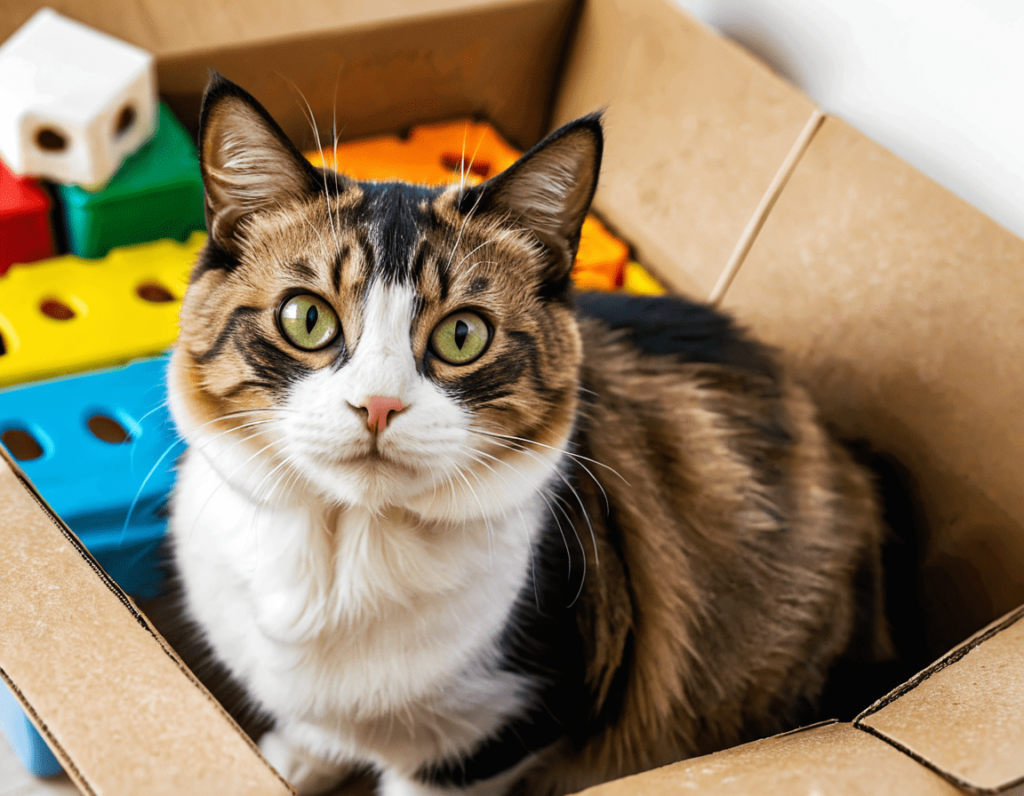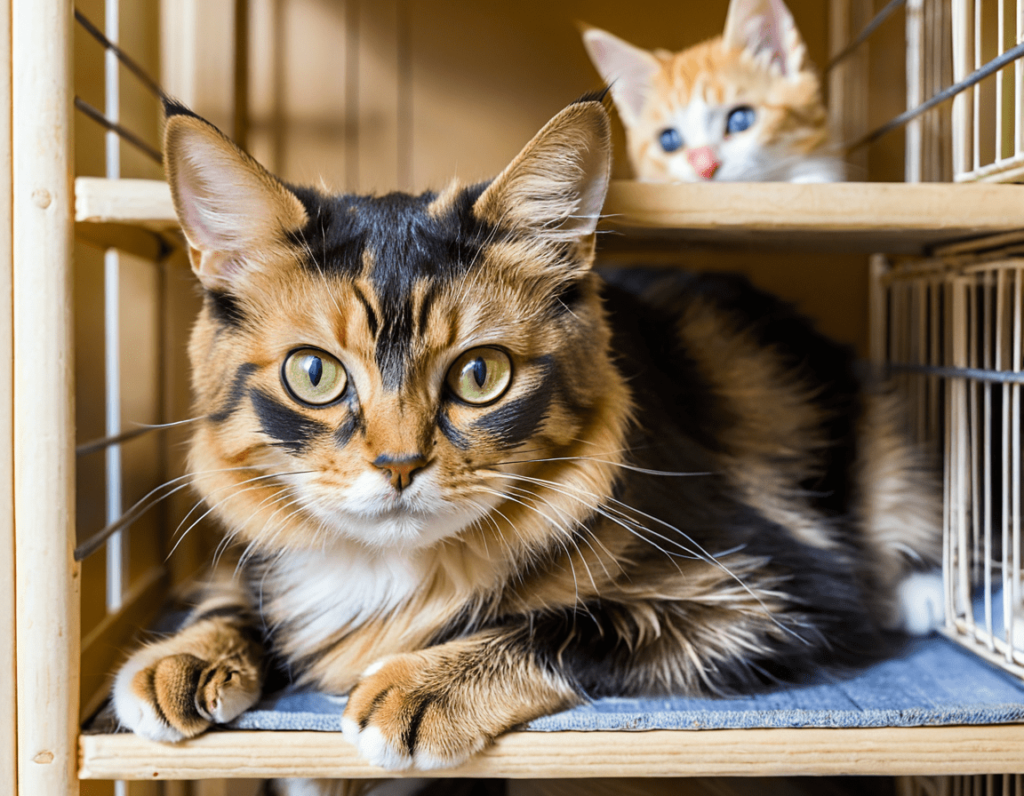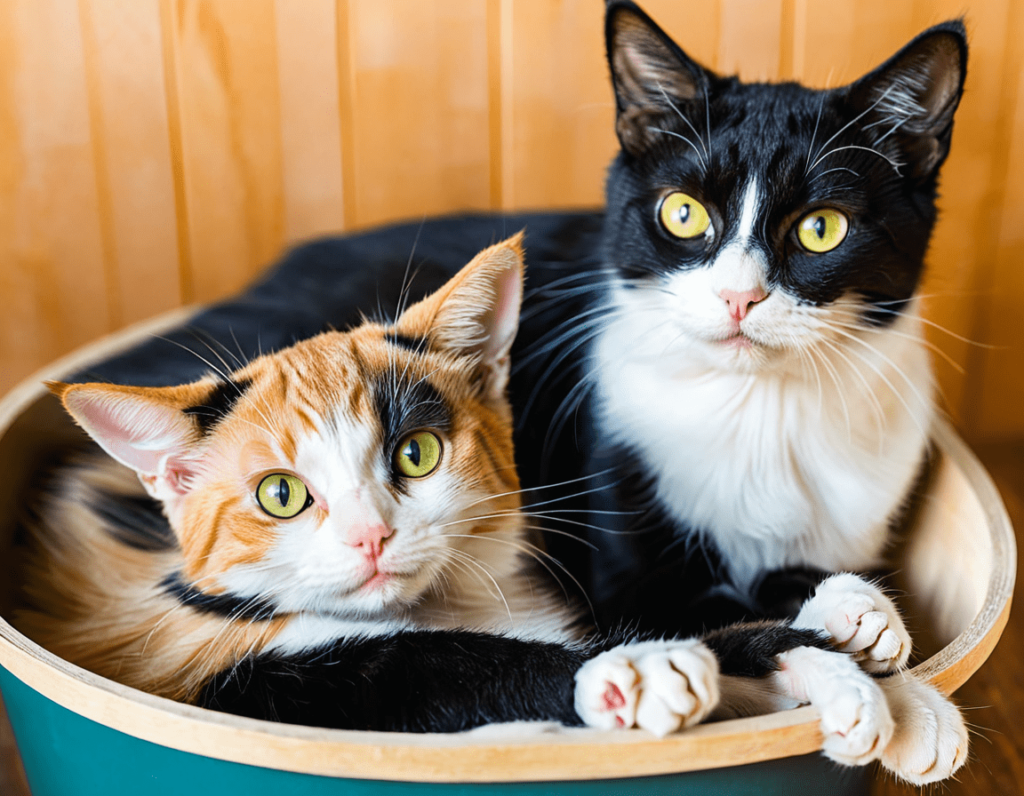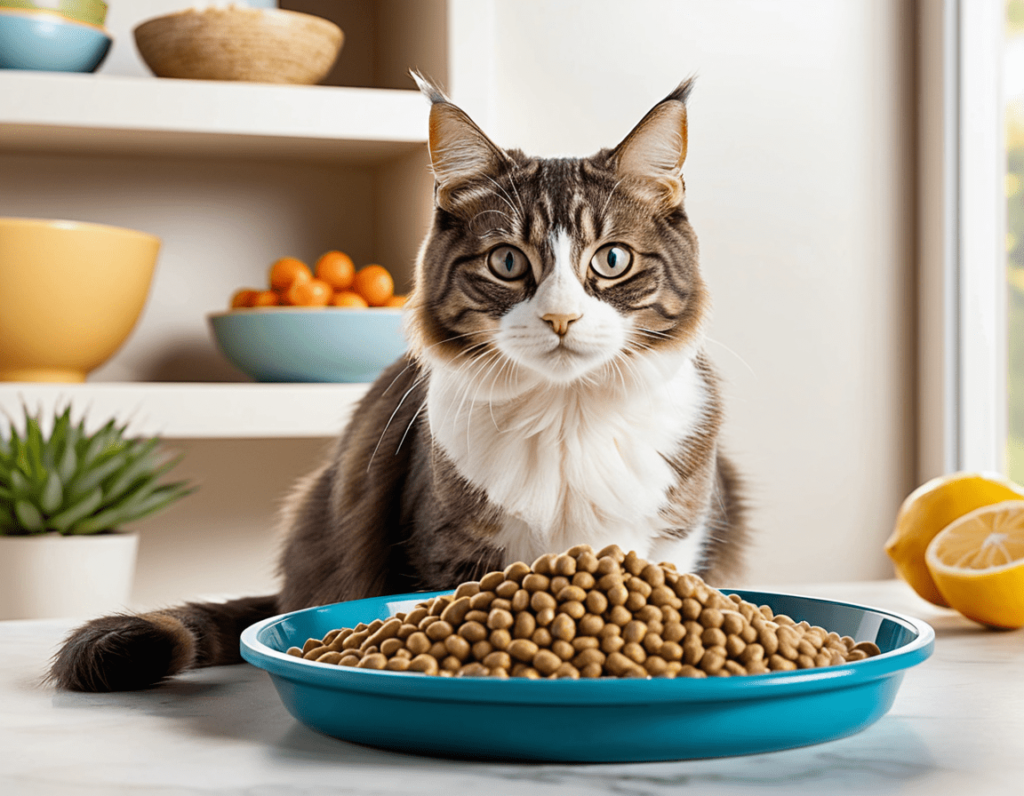
Cat Adoption: Why Bringing Home a Furry Friend is Purr-fect for You
Thinking about adopting a cat? You’re on the right track to adding a little bit of cute chaos and a whole lot of love to your life!
Cat adoption isn’t just about finding a pet; it’s about finding a companion, a couch partner, and, let’s be honest, a sassy roommate. Adopting a cat comes with a ton of benefits, not to mention you’re giving a homeless kitty a new lease on life. But before you take the leap, let’s go through the ins and outs of cat adoption and why it might just be the best decision you’ll ever make.
Why Adopt a Cat?
Adopting a cat from a shelter means you’re giving a second chance to a furry friend who really deserves it. Cats end up in shelters for a bunch of reasons, from previous owners moving away to… well, sometimes people just can’t handle the level of sass.
Here’s why you should consider adopting a cat:
- Low Maintenance: Cats are super chill compared to most pets. They don’t need walks; they clean themselves, and they can entertain themselves for hours (especially if you give them a cardboard box).
- Great Companions: Cats might have a reputation for being aloof, but most cat owners know that once you bond with them, they’ll be all over you. Expect cuddles, headbutts, and occasionally, them sitting on your laptop when you’re trying to work.
- Health Benefits: Studies show that having a cat can reduce stress and anxiety. Purring is known to have therapeutic effects, so in a way, a cat is like a living, fluffy stress ball.
Steps to Cat Adoption
Here’s a step-by-step guide to adopting your first cat, whether you’re looking for a playful kitten or a laid-back adult cat:
- Visit Local Shelters: Check out local animal shelters or rescue organizations. You can find different types of cats—from the always-napping tabbies to the curious Siamese who will follow you around like a shadow.
- Ask Questions: Spend some time with the shelter staff, who usually know a lot about each cat’s personality. Ask about the cat’s health, temperament, and anything else you might want to know.
- Prepare Your Home: Cats love to explore, so make sure you cat-proof your house. Remove any plants or substances that are toxic to cats, and consider getting a scratching post to save your furniture.
- Introduce Slowly: When you bring your cat home, give them time to adjust. Cats can be shy, so let them explore their new space at their own pace.
Must-Have Cat Essentials
You don’t need to go overboard with the pet gear, but here are a few essentials that will make your cat feel right at home:
- Litter Box: Cats like their space clean, so scoop the box daily to keep things tidy.
- Food and Water Bowls: Go for stainless steel or ceramic. They’re easy to clean and don’t hold odours.
- Toys: Catnip mice, feathers on sticks, or even a plain cardboard box can keep your cat entertained for hours.
- Scratching Post: Trust me, your couch will thank you.
Funny Realities of Cat Parenting
When you adopt a cat, you’re not just getting a pet; you’re entering a whole new world of quirky and hilarious moments. Here’s what you can expect:
- You are now the cat’s employee: Your schedule? Irrelevant. Your cat will wake you up at 3 AM just because they’re feeling a little peckish.
- Nothing is yours anymore. From the bed to the couch to that warm laptop, your cat will claim anything they like. It’s their world; you’re just living in it.
- The Zoom Meeting Cameo: Don’t be surprised when your cat walks across your keyboard or joins your video calls. You’re living with a star, after all!

Most Popular Cat Breeds to Consider
Curious about what type of cat you should adopt? Here are some popular breeds that make great companions:
- Tabby: Known for their stripes and sweet personalities. Tabbies are like the “good guy” in every cat story.
- Siamese: These chatty cats love attention and will make sure you know exactly how they feel.
- Persian: fancy, fluffy, and pretty low-energy. They’re the epitome of cat royalty.
- Maine Coon: Big and friendly, Maine Coons are known for their affectionate nature and intelligence.
Wrap-Up: Is Cat Adoption Right for You?
Adopting a cat isn’t for everyone, but for the right person, it can be a life-changing experience filled with love, laughter, and probably a few shredded couch cushions. If you’re ready for a pet that’s independent yet affectionate, quirky yet loyal, a cat might just be your perfect match.
So, what are you waiting for? Grab a scratching post, a cosy bed, and prepare to meet your new best friend!
Adopt a cat, and find yourself saying, “I can’t believe I lived without this little furball!”
Why Cats Make the Best (and Funniest) Companions
Once you’ve settled into life with a cat, you’ll notice that every day brings a new laugh and a new head-scratcher. Here’s why cat companionship is so unique and entertaining:
- The Zoomies: Just when you think everything’s calm, your cat will start sprinting around the house like they’re training for a race. At 2 AM. It’s part of their “secret cat workout” routine.
- Unconditional Love (With Conditions): Cats do love you—but on their terms. Don’t be offended if your cat ignores you sometimes; they’re just busy being a cat (aka napping).
- Expressive Personalities: You’ll soon learn that each cat has a very distinct personality. Whether they’re the type to bat at your hair, bring you “gifts” from the yard, or sit quietly as your silent companion, they’ll surprise you every day.
Preparing for a Lifetime Commitment
A cat’s average lifespan is around 12 to 18 years, so adopting a cat means committing to many years of companionship. But the rewards are worth it—especially when you consider that you’re giving a homeless animal a stable, loving home. It’s important to make sure you’re ready for the long haul because cats, even though they’re independent, do need care, attention, and love throughout their lives.
- Health Care: Schedule regular vet check-ups and vaccinations. Even though cats are low-maintenance, regular health screenings ensure they stay happy and healthy.
- Balanced Diet: A quality diet keeps their coat shiny, energy levels high, and, of course, prevents you from becoming an unwilling servant to a “hangry” cat.
- Playtime and Enrichment: Cats might act nonchalant, but they need mental stimulation. Cat trees, puzzle toys, and even a nice view from the window can keep them entertained.
Myth-Busting About Cats
Many people think cats are aloof or that they don’t bond with their owners, but that’s just not true! Here are some common myths, debunked:
- Myth: Cats don’t care about you: Cats might not wag their tails like dogs, but they show affection in their own ways. If a cat curls up on your lap, gives you headbutts, or follows you from room to room, you’re one of their favourite people.
- Myth: Cats are independent and don’t need company. While it’s true that cats are more independent than dogs, they can get lonely too. They enjoy interaction, attention, and cuddles—just on their schedule.
- Myth: Cats can live off scraps. Cats need a balanced diet with specific nutrients like taurine, so don’t skimp on quality cat food. Just because they look like mini-lions doesn’t mean they can hunt on their own (though they might think they can).
Final Thoughts: Adopt, Don’t Shop!
By adopting a cat, you’re making a difference in an animal’s life and gaining a loyal, entertaining friend. Shelter cats often come with a little mystery—you may not know their exact breed or age—but that just makes them all the more lovable. Plus, shelter cats have an extra appreciation for being in a home, and they’ll show you gratitude in their own quiet, purring way.
So, if you’re ready for purrs, head bumps, and a little bit of chaos, head to your local shelter and meet some of the fabulous felines waiting for a home. And remember: adopting a cat isn’t just about having a pet—it’s about finding a friend who’ll keep you laughing and bring joy for years to come.
In the words of a wise cat lover: Cats don’t need us. But once you have one, you’ll realize you’ve been needing them all along. 🐾

FAQs About Cat Adoption
Thinking about adopting a cat but have a few questions? Here are some frequently asked questions to help you make the best choice for both you and your future feline friend.
1. Why should I adopt a cat instead of buying one?
Answer: Adopting a cat from a shelter or rescue group not only saves an animal in need but also helps reduce the homeless pet population. Shelter cats are often already vaccinated, microchipped, and spayed or neutered, which saves you on initial costs. Plus, shelter cats are full of love and gratitude and can bring so much joy into your life!
2. What is the best age to adopt a cat?
Answer: Kittens are cute and full of energy, but they require lots of time and training. Adult cats, on the other hand, are often calmer and come with established personalities, making it easier to find the right match for your lifestyle. Many adopters find that adult cats are the perfect companions since they are already past the mischievous kitten stage.
3. How much does it cost to adopt a cat?
Answer: The adoption fee varies by shelter and location but typically ranges between $50 and $150. This fee usually includes vaccinations, a microchip, and sometimes even a starter kit of supplies. Compared to buying from a breeder or pet store, adopting from a shelter is more affordable and helps a pet in need.
4. What supplies do I need before bringing my cat home?
Answer: At a minimum, you’ll need:
- A litter box and cat litter
- Food and water bowls
- Quality cat food and treats
- A scratching post (to save your furniture!)
- A cozy bed
- Toys for playtime
Having these essentials ready will make your cat feel more comfortable in their new home.
5. Do cats get along with other pets?
Answer: Cats can coexist happily with other pets, but the introduction needs to be gradual. Some cats are more social than others, so it’s essential to get advice from shelter staff who know the cat’s temperament. A slow, supervised introduction usually helps new pets adjust to each other.
6. How much attention does a cat need?
Answer: Cats are relatively low-maintenance, but they do need daily interaction and playtime. Even though they’re independent, they enjoy bonding time and mental stimulation. Just 10-15 minutes of interactive play each day can keep your cat healthy and happy.
7. What kind of food should I feed my cat?
Answer: Cats are obligate carnivores, which means they need a diet rich in animal-based proteins. Choose a high-quality cat food that meets their nutritional needs. It’s best to consult your vet about the specific dietary requirements for your cat’s age, weight, and health.
8. Is it safe to keep a cat indoors?
Answer: Yes! Many experts recommend keeping cats indoors for their safety. Indoor cats are less likely to encounter dangers like traffic, predators, or harmful substances. To keep them entertained, you can provide window perches, cat trees, and interactive toys. If you want your cat to experience the outdoors safely, consider leash training or setting up a secure outdoor cat enclosure.
9. What should I do if my cat has behaviour issues?
Answer: Common cat behaviour issues, like scratching furniture or refusing to use the litter box, are usually solvable with a little patience and training. Providing scratching posts, regular playtime, and a clean litter box often resolves many problems. If issues persist, consult a vet or a cat behaviourist for guidance.
10. How do I know if a cat is the right fit for me?
Answer: Before adopting, spend time with different cats at the shelter to get a sense of their personalities. Talk to shelter staff about your lifestyle, activity level, and home environment. They can help you find a cat with a personality that matches yours, whether you’re looking for a playful kitten or a laid-back adult cat.
11. What if I have allergies?
Answer: If you’re allergic to cats but still want to adopt, try spending time around different cats first to see how severe your allergies are. Some breeds produce fewer allergens, so consider adopting a hypoallergenic breed. You can also take steps like regular cleaning and keeping the cat out of certain areas to reduce allergens.
12. What is the adoption process like?
Answer: The adoption process typically involves filling out an application, meeting with shelter staff, and sometimes a home visit or interview. The goal is to ensure that both you and the cat are a good match for each other. Once approved, you can often bring your new friend home the same day!
13. Can I return a cat if things don’t work out?
Answer: Reputable shelters and rescues usually allow returns if the adoption isn’t a good fit. While no one wants to go this route, shelters understand that sometimes unexpected issues arise, and they’re there to help. Some shelters may even offer support and resources to address any problems before considering a return.
14. How can I help even if I can’t adopt a cat?
Answer: If you can’t adopt a cat, there are plenty of ways to support your local shelter. You can volunteer, foster a cat temporarily, donate supplies, or help spread the word about cats needing homes. Every little bit helps to make a difference!
Final Thought
Adopting a cat is a big decision, but it’s one that comes with endless rewards. Cats are playful, affectionate, and full of personality — and when you adopt, you’re changing their life and bringing joy to your own. If you’re ready to take the plunge, a new best friend may be waiting for you at the shelter!


